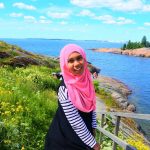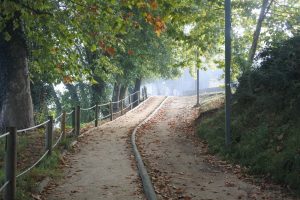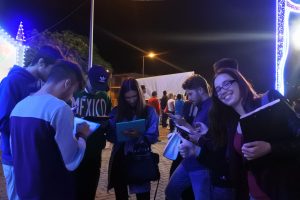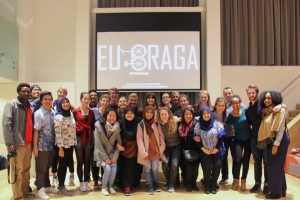European Workshop: A challenging and one of a kind course at WUR you should take!
European Workshop Environmental Sciences and Management is a consultancy project course that allows students from four masters programmes to join. They are Environmental Sciences (MES), Urban Environmental Management (MUE), Tourism, Society and Environment (MTO), and Aquaculture and Marine Resource Management (MAM). The two months duration equals 12 credits.
So, following the European Workshop, you don’t need to take MOS modules, which commonly taken out by those who choose the Academic Consultancy Training (ACT).
Due to the limited capacity of students, registration for this course is different from regular courses. You have to pay attention to the registration date. You have to send your motivation letter via email to the coordinator. If you are selected, you will be informed a few days after the registration is closed. In addition, the course is during period 6 and period 1. So, if you start your master programme in period 1 (September), you will likely join this course in period 6 (May/June), and for those who start in period 4 (February) will be able to register in period 1 (September/October).
If you are selected, you will be informed a few days after closing the registration
How I ended up following this course
Ever since I became interested in the Environmental Sciences master programme at WUR, I was enthusiastic about this course. I read the information on the website and was thrilled. I worked in a consultancy company for 2,5 years prior to my Master programme. Therefore, I wanted to experience how a consultancy works here in Europe. The first thing I did after re-enrolled as a student was meeting my study advisor. It was an important meeting because you will have an overview of your two years of study. Of course, you still be able to change it anytime, but knowing what you will do from the beginning is always nice. In this meeting, I clearly stated that I wanted to do the European Workshop. Fortunately, my study advisor supported me.
To my knowledge, the coordinator of the course will also contact your study advisor when considering the student candidates to be selected.
In my case, I need to send an email to my study advisor because I started my master’s programme a bit late, and therefore I didn’t do a compulsory course in period 4. I supposed to start in February, but due to the late announcement of the scholarship, I couldn’t catch up to follow the course in period 4. Actually, the course I missed is one of the required courses before taking the European Workshop. Well, there is always an exception if you can explain it clearly and you have a rational reason behind it. Eventually, I was accepted to the European Workshop course!
If it is not changed, this the selection criteria (not in order of importance);
- Your performance at WUR before applying (based on marks and courses)
- Motivation letter (in time)
- According to the number of the project. Usually, in period 1, they only offer fewer projects than in period 6. In my batch, they only provided 1 project. Therefore, they have to make a selection.
Intense Course yet Fun!
The best thing I like about this course is that we can spend two weeks in another country outside the Netherlands for the fieldwork.
Besides, there are three phases of the European Workshop. First, three weeks of preparation where we have to divide tasks on who’s doing what, making questionnaires and observation guide, sending an email, and calling stakeholders to have an interview, as well as testing those questionnaires and the observation guide. During the day, you have to give your best and make your self to the fullest because it is full of group work, meeting, and working on something. However, there is no homework. You can chill and have a rest in the evening.
A number of 30 students in total form this course. Therefore, there are a lot of group dynamics during the course, especially in the first and second phases. From the beginning, you already at least have two groups namely expert group and geo-group. An expert group is a theme group which you can choose by yourself after the discussion in your geo-group. Geo-group is an area-based group where you will do your survey, observation, and interview for that specific area. Coordinators make the groups as diverse as possible. During the three phases, you will most likely come across to all people because you will have more groups due to the specific tasks.
Braga – Portugal
The second phase is the time to fly to another European country!. It was so exciting for me because I went to Braga – Portugal and spent two weeks in another place in the world which I never imagine that I would visit someday. It was a quiet place and not so touristic city. So, we had a feeling of being local people there, and I will cherish all the memories I had spent there. Our project was mobile sustainability, which focuses on improving cycling behavior in Braga city.
Existing cycle path in Merelim Sao Paio – Braga
Despite the excitement, the two weeks of fieldwork were more intense than what we did in Wageningen.
We often had meetings in the evening, and even hand out questionnaires at night. Well, that was a particular case, because in our group area there was a festival and it was just a perfect time to enjoy the party as well as filling more questionnaires. Everyone worked their best, so at the end of the fieldwork, we gathered sufficient data.
Handed out questionnaires during the festival event in our geo-area
Finalization and report
The third phase is a finalization phase. Again we formed more groups here. For example, some people that have basic or want to learn about statistics can join the SPSS team. Some focused on creating maps, making presentation slides, and synthesize the final deliverable report. A synthesis report contains several pages of main results from all areas, and in the appendices, we included all the five geo-group reports as well as the statistics outcome.
Last picture of us after the final presentation
Besides, we also have to deliver something, such as a video or a poster. Unfortunately, for now, I cannot find the deliverable video that we have made. So, here is another video that I made for my satisfaction. Enjoy!





Dear writer,
As and MUE student who studied in Wageningen for already 4 years I am really excited about European workshop and I would like to know more about it. Normally in period 6 ACT is scheduled for me but I consider European workshop now. Who do I have to sent my motivation letter to and what would the subject of period 6 be this year? I would like to hear from you.
Kind regards,
Hi Edo,
Nice that you are interested in the European workshop! I would suggest that you ask your study adviser or programme director for more information. Since this is something that is part of the curriculum of the programme, they should be able to help you further with the procedure.
Good luck!
Warm regards,
Laura